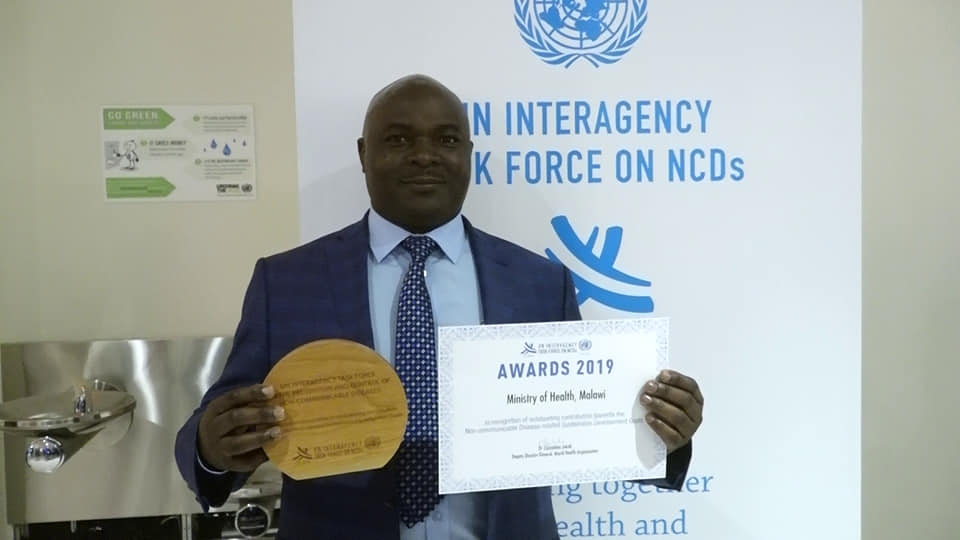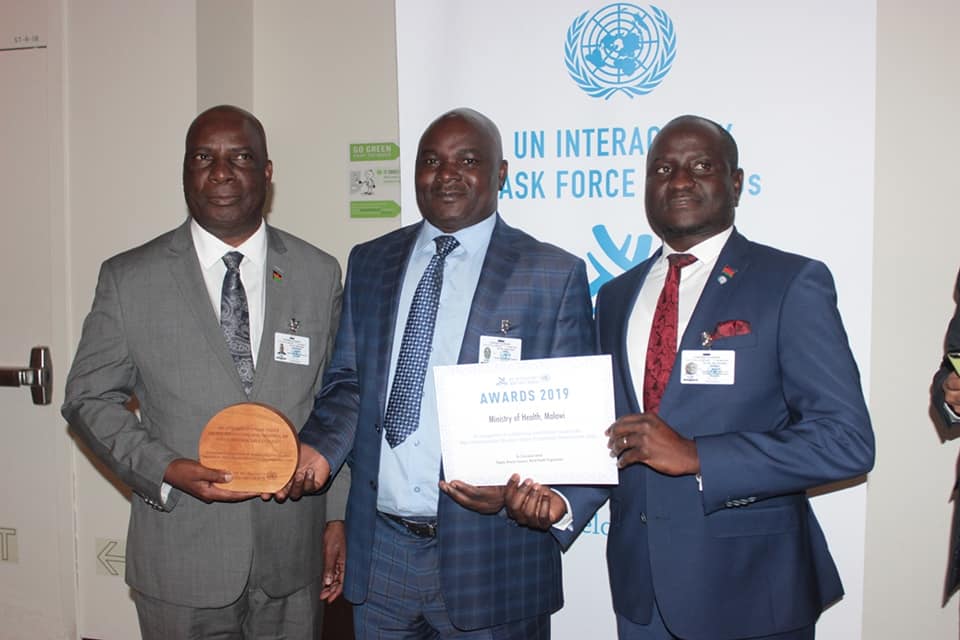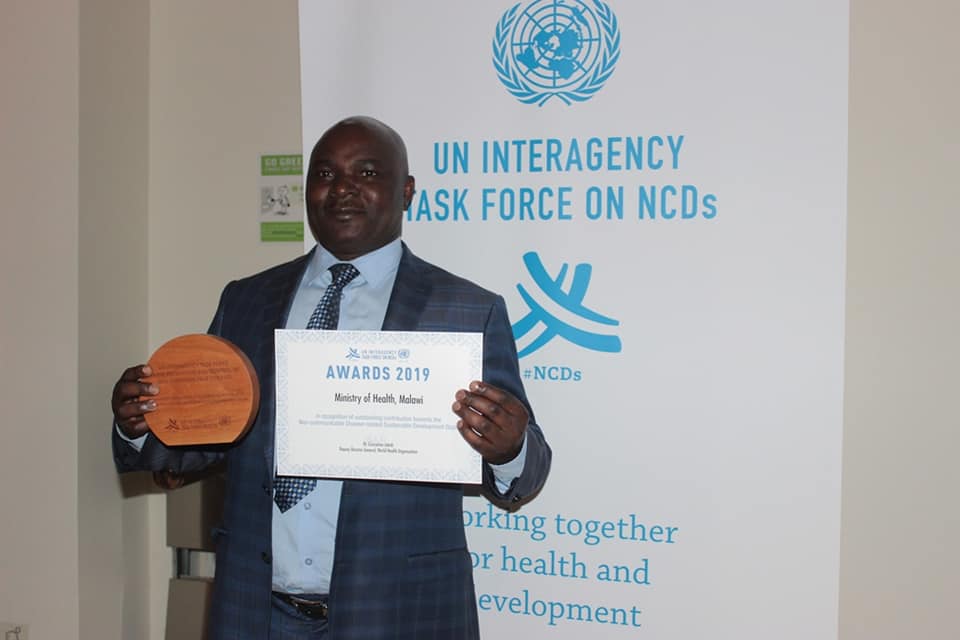Malawi has been recognized at the United Nations General Assembly (UNGA) taking place in United States for working tirelessly in preventing and controlling Non-communiable Diseases (NCDs).
The country received the UN Interagency Task Force for the Prevention and Control of Non-Communicable Diseases Award through the Ministry of Health (MoH).
Minister of Health and Population Jappie Mhango received the award on behalf of President Peter Mutharika.
MoH chief of health services Dr. Charles Mwansambo in an interview at the UN Headquarters in New York, said Malawi has earned the award because of several strategies the country put place in the fight against NCDs.
He said: “The award will be presented during the UN High Level Meeting at the UN Interagency Task Force for the Prevention and Control on Non-Communicable Diseases Friends of the Task Force Side Event on Monday, 23rd September 2019 in the UN Building.”
According to Mwansambo, some of the strategies that have attracted the award are the establishment of NCDs Unit in 2011 to coordinate the national response to NCDs; enhanced community mobilisation on NCDs; educating patients in health facilities and communities; strengthening capacity of healthcare providers in managing patients with NCDs; and monitoring and evaluation of NCDs in health facilities.
He added: “We also introduced Human Papiloma Virus [HPV] vaccine targeting nine-year-old girls and launched the NCDs Lancet Commission two years ago with the aim to rethink about global policies and mend a great disparity in health and broaden the current NCD agenda in the interest of equity.
“Malawi is establishing the Emergency Medical Services dedicated to providing out of hospital emergency medical care to save lives and prevent disability.”
NCDs are diseases that are not transmitted directly from one person to another. They include most heart diseases, cancers, diabetes, chronic lung diseases, epilepsy, mental health disorders and injuries.
Most NCDs are caused as a result of lifestyle and environmental factors.
Mwansambo said in the 1960s and 1970s, NCDs were not an important public health problem as prevalence was one percent.
“Now NCDs and their risk factors constitute a public health and these diseases contribute more than 30 percent of disease burden and are ranked 4th as a cause of disability adjusted life years,” he said.
On his part, Minister of Health Jappie Mhango, who is also attending the UNGA, said NCDs are a global problem.






